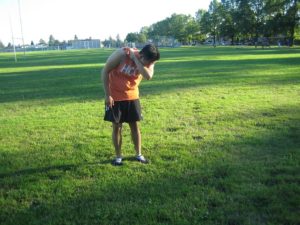Aspiration occurs once a foreign object was breathed in which includes liquid, food piece, gum or even vomit. The entity can end up embedded in the lungs in which it ends up stuck unless coughed up by the individual.
If the individual has a frail cough, the foreign body could not be coughed up and most do not realize that the piece moved down the “wrong pipe”. This issue is prevalent among the elderly who have issues with swallowing.
An individual admitted in a healthcare facility is indicated as an “aspiration risk” since he/she is known to have diminished ability to swallowing normally.
Close look on pneumonia
It is important to note that pneumonia is an infection involving the lungs and typically due to bacteria. In some cases, a food particle is aspirated into the lungs where it can trigger serious issues and increase the presence of bacteria as the food starts to rot inside the lungs.
In some instances, the individual is aware that a piece of food is present and can be removed with bronchoscopy.
When it comes of aspiration pneumonia, it is often defined as the buildup of infectious material within the lungs. This is due to the presence of a foreign material which causes difficulty breathing.
What are the signs?

- Coughing
- Pain or discomfort in the affected lung
- Shortness of breath
- Wheezing
Management of aspiration pneumonia
Aspiration pneumonia is managed with the removal of the foreign object if possible and preventing the aspiration of more fluids or food. Generally, the individual is not allowed to eat and given fluids and calories intravenously or a feeding tube.
Antibiotics are also an essential part of treatment to reduce the number of bacteria that builds up in the lungs as well as preventing the infection from getting worse. Remember that this form of pneumonia is hard to treat and might require a prolonged course of antibiotics.
Breathing modalities might be provided to improve the capability to breathe easily, lessen the coughing episodes and irritation as well as improving the oxygenation in the body.
